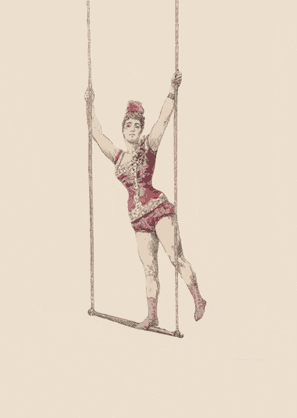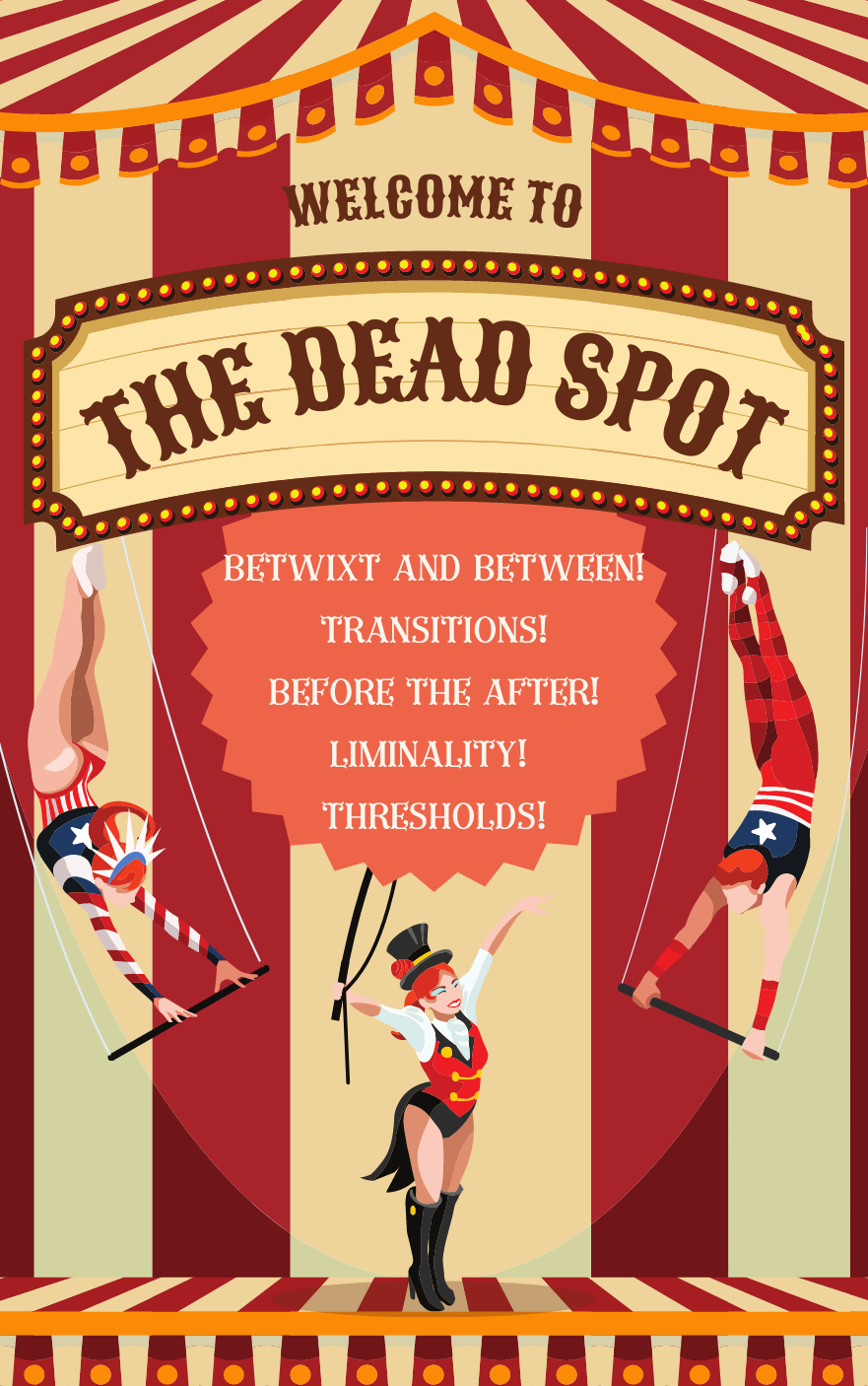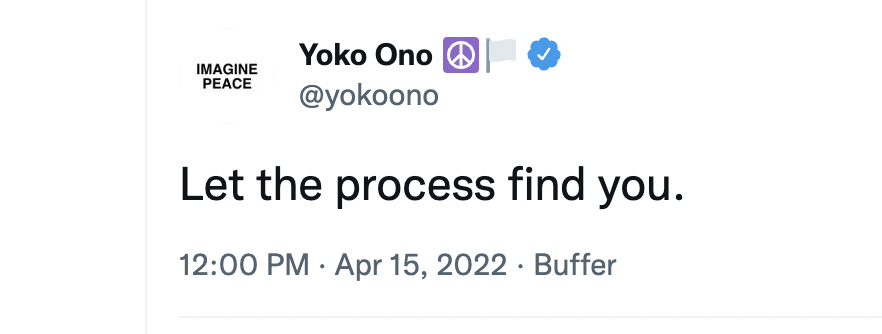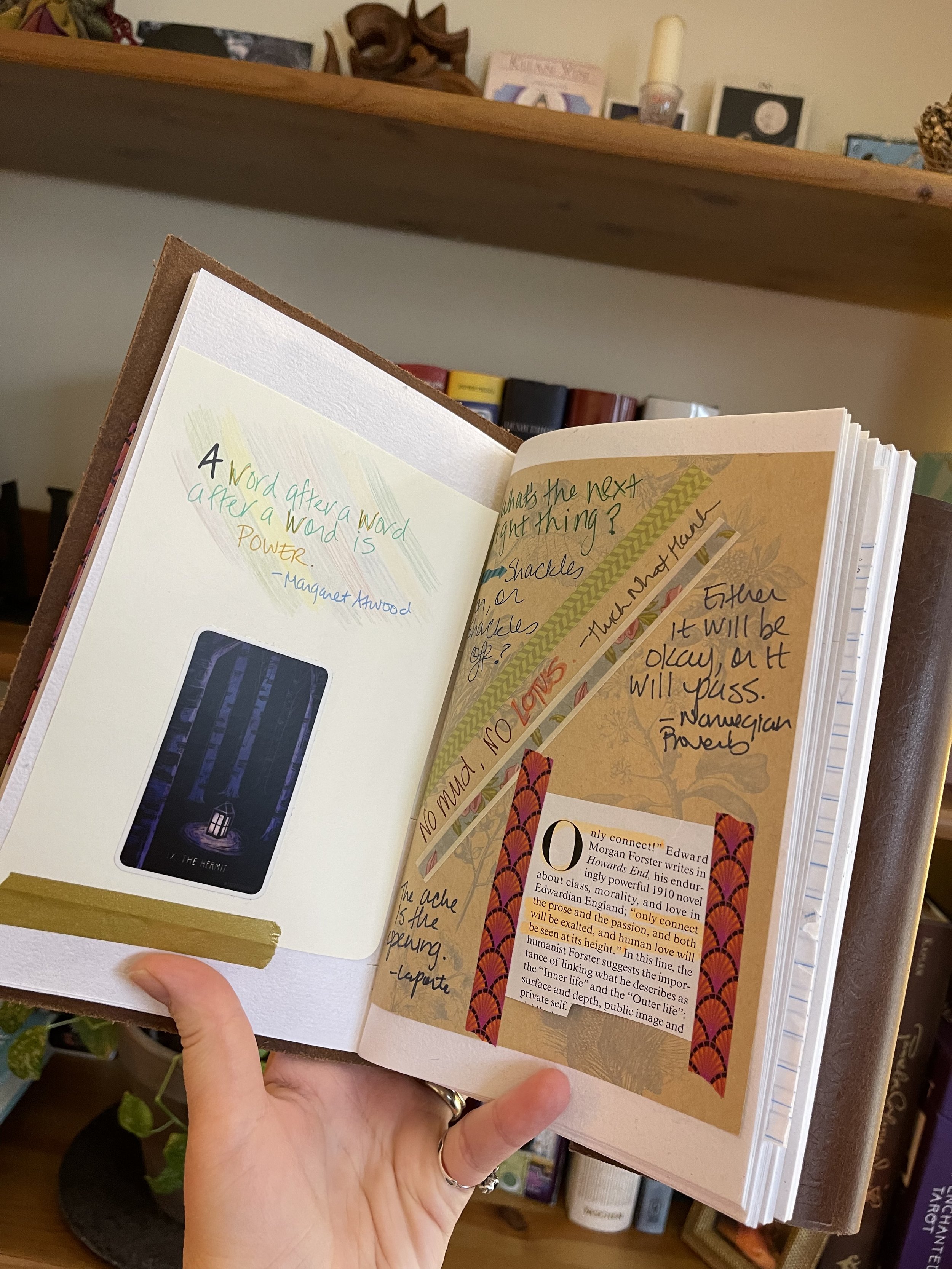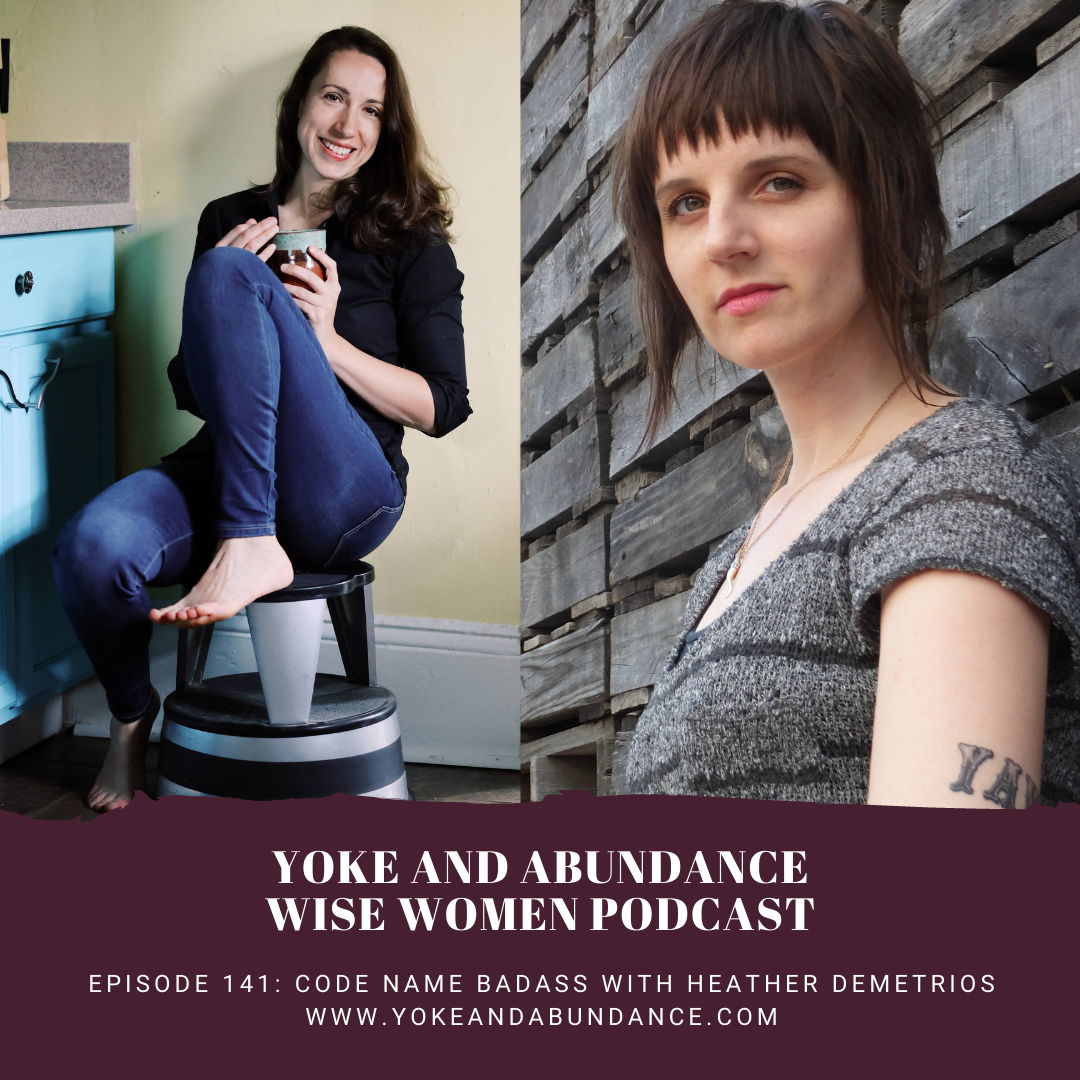“We have to allow ourselves to be drawn out of business as usual and remain patiently on the threshold (limen, in Latin) where we are betwixt and between the familiar and the completely unknown. There alone is our old world left behind while we are not yet sure of the new existence. That’s a good space where genuine newness can begin. Get there often and stay there as long as you can by whatever means possible. ”
You know when you hit on something - a word that resonates, in this case - and then you see it bloody everywhere? And it feels like the universe is stalking you? And then you say that word to other people and it's like you handed them a puzzle piece they didn't even know they'd lost?
For me and the writers I work with, right now that word is LIMINAL.
It's a perfect word for this spring equinox season, an in-between period where things have been planted, but - at least here in Minnesota - not yet blooming.
Betwixt and between.
Suspended.
Chrysalis.
Liminal.
Also known as....The Dead Spot. (More on that in a moment).
I love this definition of liminal by Heather Plett in her fabulous book, The Art of Holding Space:
"Liminal space, then, is a period in which something - social hierarchy, culture, belief, tradition, identity, etc. - has been dissolved and a new thing has not yet emerged to take its place...It's that period of uncertainty, ambiguity, restlessness, fear, discomfort, and anguish. It's the space between, when a trapeze artist lets go of one bar and doesn't yet know whether they will be able to catch the other bar.
As I probe into the nuances of this word, I'm discovering the ways in which liminality is pregnant with energy and power and gestational force. It's a time of possibility even as it's a time of uncertainty.
It creates a container to question and re-examine your life and your choices. It suspends the day-to-day habit energy that often acts as a coma through which we go through the motions of our hours. Whether what lies on the other side is the very worst news or something wonderful, that period of time before you know the outcome can offer up so much transformation...if you let it.
I've also begun to notice how liminal seasons often overlap. Some liminal seasons can last decades, others only a few days - as long as it takes for that biopsy or acceptance letter to come back. This offers up the invitation to recognize what areas of your life might need a little more attention and tenderness simply because they are resting in a liminal zone.
A few things I've noticed about my own liminal periods, whether it's being on sub or waiting for test results or being in between gigs, homes, or big decisions:
A sort of hazy feeling. I can also be quite distracted.
I tend to feel a bit drained and tired, but in a way that I find myself suddenly allowing more rest and ease.
I say NO more.
It is much easier for my anxiety to be triggered, so I have to be careful of spaces where I may be prone to comparison.
I feel hesitant about making big decisions, yet also feel drawn to wild re-imagination of my my life.
I begin to re-think not just the area of my life that the liminality dwells in, but other aspects as well. Questions about health lead me to reconsider my bandwidth, my relationships, my priorities.
My emotions pendulate more. When a book is on sub or about to publish, I go from certainty and excitement to existential dread and despair, sometimes in a matter of minutes. (Mindfulness is very helpful here).
I feel a bit more tender in liminal times or spaces of my life. Because of this, I draw inward more and I find deeper and deeper comfort in the divine feminine, in my female lineage, in sacred solitude.
Comfort is key. Warm drinks, lots of blankets, escapist books.
THE DEAD SPOT
As soon as this word - liminal - began nipping at my heels, I happened to begin reading two books simultaneously that were all about liminality. I did not know this was going to happen! Nothing in their titles mentioned anything about liminality, but this is the kind of synchronicity that occurs when you stumble on something that Source wants you to pay attention to.
The first is the Heather Plett book I mentioned above. The second is Diane Eshin Rizzetto's Zen book, Waking Up to What You Do. It's in this book that I learned one of the most helpful concepts I've come across to explore liminality: what trapeze artists call "The Dead Spot."
Rizzetto explores an interview in the San Francisco Chronicle with trapeze artists to look at the gifts of liminality. The trapeze artists share that the dead spot occurs "...at the end of the swing...when the swinging bar stops moving in one direction and starts moving in the other. Like when you're highest on a playground swing. The whole idea is to use that change of momentum to create the trick." In fact, she says, it's in that precise moment that the next trick is born.
"Timing," one of the artists interviewed said, "is all...there will be change. The pendulum will literally swing the other way. You can't change that. You can only use it."
I love that last bit - you can't change the liminality, you can only use it. The momentum, the hope, the determination, your training.
Rizzetto expands on this to suggest that the moment between letting go of the bar and reaching for the next one is also part of a dead spot (and Plett, given her definition of liminality above, says as much, too). It's a place of ultimate uncertainty - and unlimited potential. Rizzetto writes:
"We don't have to be trapeze artists to know that dead spot. Sooner or later, if we're lucky, we'll find ourselves awake, suspended between the bars. Of course it's the last place we want to be. But if approached with intelligence, the dead spot can be the key to understanding the reactionary behaviors spinning in the dream of self. We can learn how to work in that split second, when either there is no new bar for us to grasp or our usual favorites no longer work; we have the opportunity to know ourselves in a way that is open to whatever life brings our way...we meet the power and creativity to break away from our habitual thoughts, emotional matrix, body patterns, and energy that fuel and direct our reactions."
The Dead Spot is:
Suspended
Between
A key
Opportunity
Power
Creativity
Breaking Away
This is a radically different approach to the way we often approach liminal seasons. Usually it's all nail-biting and treading water and stress and worry. But there is another way. It's almost always useless to swim against the current, is it not?
Here are a few of my current dead spots. The name is ironic because they are already so life-giving, if I can simply look at them in an entirely new way:
My book is on sub. This is the ultimate liminal place as a writer. You're in this weird shadowy land where you float through uncertainty, despair, elation, confusion, doubt, rage, frustration, desperation....You wonder if you should start a new project, but when you try to, it's very hard to concentrate. You have no control. You are on the threshold of a life where this book gets published, one where it doesn't get published, one where you revise it and make it something else so it can get published, one where you throw in the towel, one where you....choose your own adventure.
I have two new books I want to work on, but I've yet to start. Right now, they are perfect. Untouched. Pristine. Once I start putting words down, that will shift. Not vanish entirely, but I will see the gap between what's in my head and what's on the page. And so I am going to enjoy this space a little longer. The one of possibility, with no baggage. But I can't stay in this dead spot forever. And I hope I have a good trick up my sleeve when I let go.
The Zen Master and I just bought our first place! There's the fear and thrill of buying a place to really put down roots in. The sadness of leaving a well-loved home with fabulous neighbors. We know our closing date, but it's three weeks away. Our landlord hasn't found someone to cover our lease, so we aren't sure when to start packing. Liminal. Betwixt and between. For now, I will dream of paint samples and the green velvet couch the owner threw in.
I have been in a liminal place with a chronic condition for twenty years. I finally just got the results of an exploratory surgery: endometriosis. But now I have decisions to make. This is the Heather before hormone therapy. Or before a hysterectomy. Or before deciding to forge a whole new path. (My loves, no advice please. Goodwill, though, is very much appreciated). For all of you battling chronic pain, I know a big part of you is always in liminality. And each dead spot feels harder than the last. I keep thinking about harnessing the power inherent in letting go to give me the strength to advocate for myself and others.
This list would be very long indeed if I shared the liminal spaces I am witness to with friends and loved ones. With the writers I work with, who leave me messages filled with excitement over a big-time editor reading their book to despair over yet another glowing rejection. By now, though, I think you have the gist.
Grab your journal and write down your current dead spots. Where is there liminality in your life? What are the larger social dead spots that are directly affecting you? How do these spaces make you feel? How do you hold space for them? Is there more you could do to be kind to yourself and take advantage of the possibility of transformation during this time? Are you noticing thoughts that wonder if you should burn it all down or do something radically different or quit something or start something? What would it feel like to listen to them?
When you're done with that, I recommend doing this Liminal Dream Space meditation by my favorite teacher on Insight Timer, Jennifer Piercy. It's a delicious exploration.
Wherever this missive finds you, and whatever dead spot you may be experiencing, just know that, as counter-intuitive as it may seem, it is well worth allowing yourself to lean in. Your habit energy may encourage self-judgement, or compartmentalizing, or powering through: but all seeds need water and sunshine and time to grow. And so do you.
Yours in doing right by the miracle,
